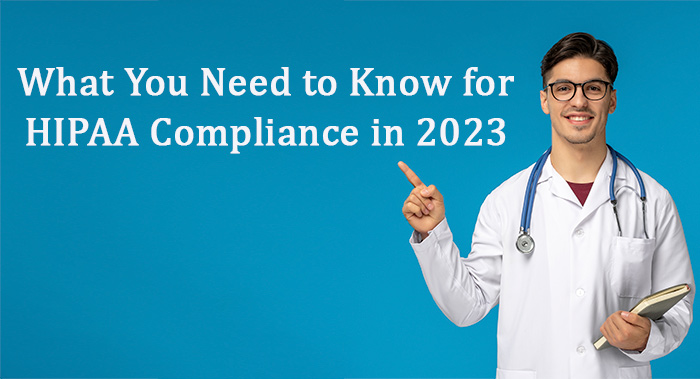
What You Need to Know for HIPAA Compliance in 2023
In the modern healthcare landscape, protecting patient data is paramount. The Health Insurance Portability and Accountability Act (HIPAA) plays a crucial role in safeguarding sensitive health information from misuse, ensuring confidentiality, and promoting trust between patients and healthcare providers. HIPAA compliance is a vital requirement for healthcare entities, including hospitals, insurance companies, and even third-party service providers. This article explores the key components of HIPAA compliance, why it matters, and how organizations can maintain it.
How to Achieve HIPAA Compliance
Achieving HIPAA compliance requires a multi-faceted approach and a commitment to following the law's principles. Here are several steps organizations can take to ensure compliance:
-
Conduct a Risk Assessment: A thorough risk assessment is crucial to understanding where your organization’s vulnerabilities lie. This involves evaluating current processes, identifying potential threats, and assessing how well existing security measures are working to protect PHI.
-
Implement Security Measures: Based on the risk assessment, implement the necessary security measures to protect both physical and electronic PHI. This can include encryption, firewalls, secure passwords, multi-factor authentication, and access controls.
-
Employee Training: Employees must be trained regularly on HIPAA regulations and the organization’s privacy policies. This includes ensuring that they understand the importance of protecting PHI and the consequences of non-compliance.
-
Develop Privacy and Security Policies: Establish and document clear policies that outline how PHI will be handled, stored, and transmitted. These policies should address everything from employee access to PHI to the procedures for responding to data breaches.
-
Monitor and Audit: Regularly monitor and audit systems for any vulnerabilities or suspicious activities. Maintaining an ongoing process of compliance review ensures that your organization stays up to date with evolving regulations and best practices.
-
Establish a Breach Response Plan: In the event of a data breach, it’s crucial to have a response plan in place. This should include protocols for notifying affected individuals, reporting to authorities, and mitigating any further damage.
Challenges in Achieving HIPAA Compliance
Achieving and maintaining HIPAA compliance is not without its challenges. The complexity of the regulations, combined with the rapidly changing nature of technology, means that healthcare organizations must be proactive in addressing privacy and security concerns.
For example, organizations must keep up with advancements in cybersecurity and adapt their policies and systems to address emerging threats like ransomware or hacking. Additionally, for organizations that work with third-party vendors (such as cloud services or medical billing services), ensuring that business associates are also compliant adds an extra layer of responsibility.
Conclusion
HIPAA compliance is not just a legal requirement; it’s a critical element in ensuring the confidentiality, integrity, and security of healthcare data. By following the guidelines set out in the Privacy, Security, and Breach Notification Rules, healthcare organizations can protect their patients' sensitive information, avoid financial penalties, and foster trust within the healthcare ecosystem.
As technology evolves and healthcare data grows increasingly digital, maintaining HIPAA compliance will continue to be an essential part of healthcare operations. Organizations that prioritize privacy and security not only fulfill their legal obligations but also contribute to a more secure and trustworthy healthcare environment for all.




